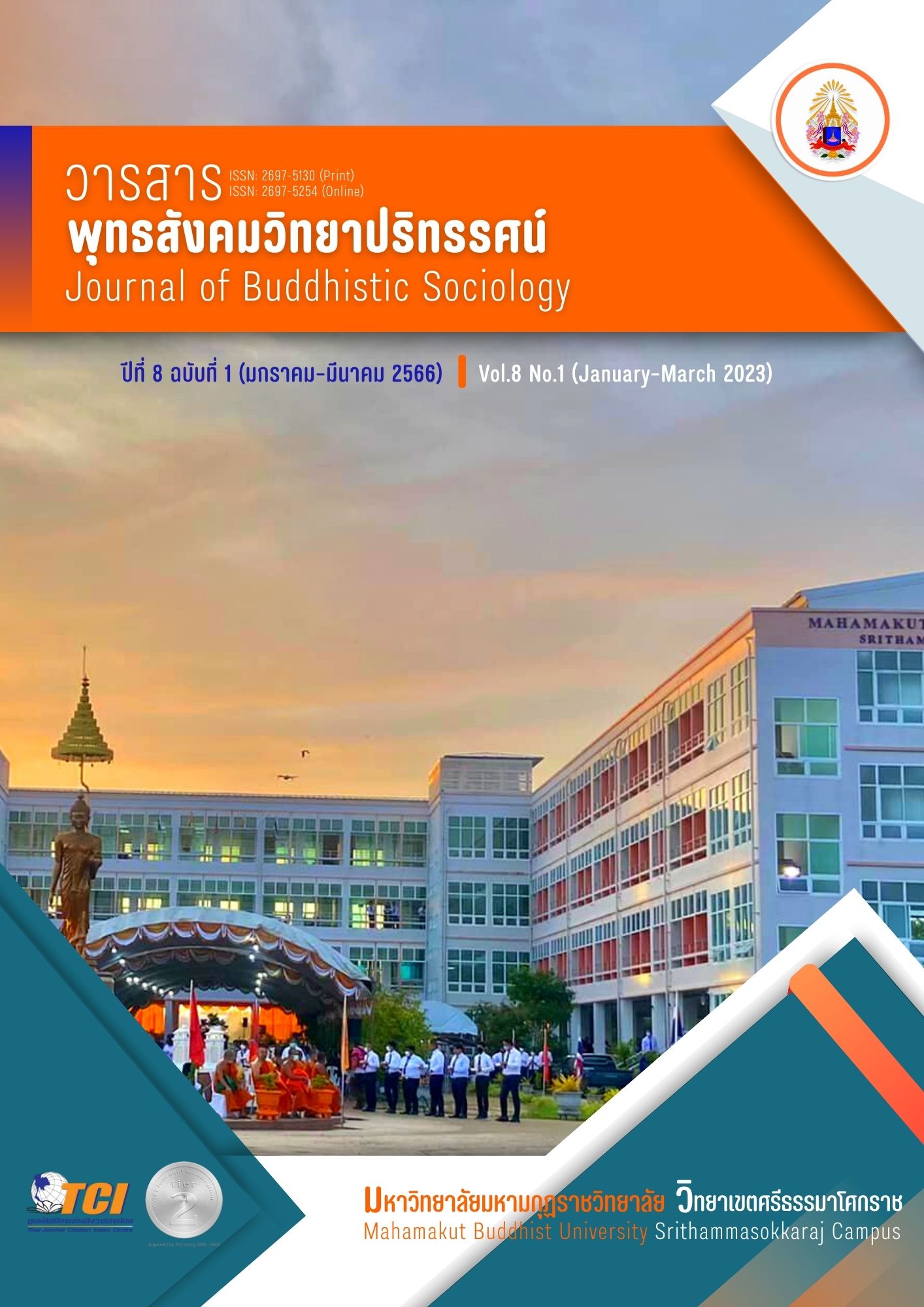FACTORS FOR PARTIPATORY MANAGEMENT OF PRIVATE SCHOOLS IN KRABI PROVINCE
Main Article Content
Abstract
The purpose of this research is to 1) To study components of participatory administration of private schools. Krabi Province 2) To study the level of opinions on components of participatory administration of private schools. Krabi Province and 3) To analyze components of participatory administration of private schools. Krabi Province Data were collected from interview forms with 8 key informants, 9 directors of private schools in Krabi Province, and 312 sample groups. A total of 312 questionnaires were returned, representing 100%. Data were analyzed using frequency, hundredth. each standard deviation
The results showed that;
The level of opinion on the participatory management component of private schools in Krabi province. Average of opinions, elements, participatory administration in private schools. On a case-by-case basis at the highest level, it was found that teachers' participation in the evaluation of the implementation of the school curriculum for teaching and learning was at the highest level and the building of relationships to achieve close and mutual understanding between administrators, teachers and school boards was at the lowest level. It found that there are a total of 5 elements, comprising the elements Quality Management, Cooperation between educational institutions and communities, System of administration in educational institutions, Participatory corporate management and Participation of personnel in educational institutions.
Article Details

This work is licensed under a Creative Commons Attribution-NonCommercial-NoDerivatives 4.0 International License.
References
กรมวิชาการ . (2543). แนวทางการนำมาตรฐานหลักสูตรไปสู่การออกแบบการจัดการเรียนรู้และวัดผลตามสภาพจริง. กรุงเทพมหานคร: กรมวิชาการ.
กระทรวงศึกษาธิการ. (2542). พระราชบัญญัติการศึกษาแห่งชาติ พุทธศักราช 2542. กรุงเทพมหานคร: คุรุสภาลาดพร้าว.
จันทรานี สงวนนาม. (2553). ทฤษฎีและแนวปฏิบัติในการบริหารสถานศึกษา (พิมพ์ครั้งที่ 3). กรุงเทพมหานคร: บุ๊คพอยท์.
ดวงแก้ว กอแก้ว. (2543). ความสัมพันธ์ระหว่างการบริหารงานแบบมีส่วนร่วมความพึงพอใจในการปฏิบัติงานความผูกพันในองค์การและเจตคติต่อองค์การ :กรณีศึกษา ธนาคารกรุงเทพฯ จํากัด (มหาชน) สาขาบางกะปิ. ใน วิทยานิพนธ์ปริญญาศิลปศาสตรมหาบัณฑิต สาขาวิชารัฐศาสตร์. มหาวิทยาลัย เกษตรศาสตร์.
พิสัณห์ หิรัญวงษ์. (2541). การศึกษาการบริหารโดยให้บุคลากรมีส่วนร่วมในโรงเรียนประถมศึกษา สังกัดสำนักงานการประถมศึกษาจังหวัดอุดรธานี. ใน วิทยานิพนธ์ศึกษาศาสตรมหาบัณฑิต. มหาวิทยาลัยขอนแก่น.
สัมฤทธิ์ กางเพ็ง. (2545). รูปแบบการมีส่วนร่วมในสถานศึกษา. วารสารวิชาการกรมวิชาการ, 5(4), 50.
สุดา ทัพสุวรรณ. (2545). บ้านกับนักเรียน. วารสารบริหารการศึกษา มหาวิทยาลัยศรีนครินทรวิโรฒ, 1(2), 23.
Bryman, A. (1986). Leadership and Organization. London: Routedge & Kegan Paul.
Likert, Rensis. (1961). New Pattern of Management. New York: McGraw – Hill.
Satcher, D. (2005). Healthy and ready to learn. Educational Leadership, 9, 26-31.
Swansburg, R. (1996). Management and Leadership for Nurse Management. Boston: Jones and Bartlett.


